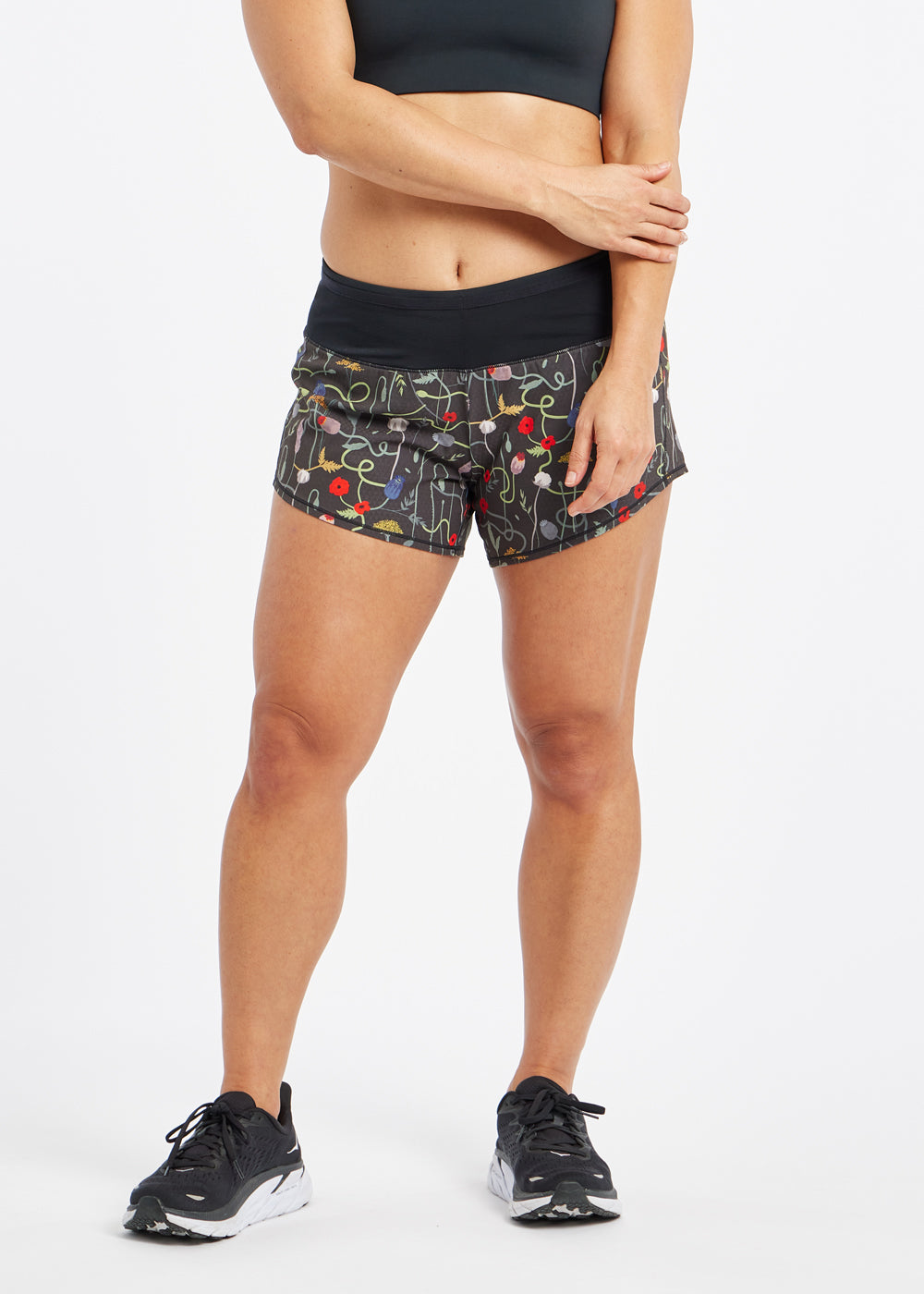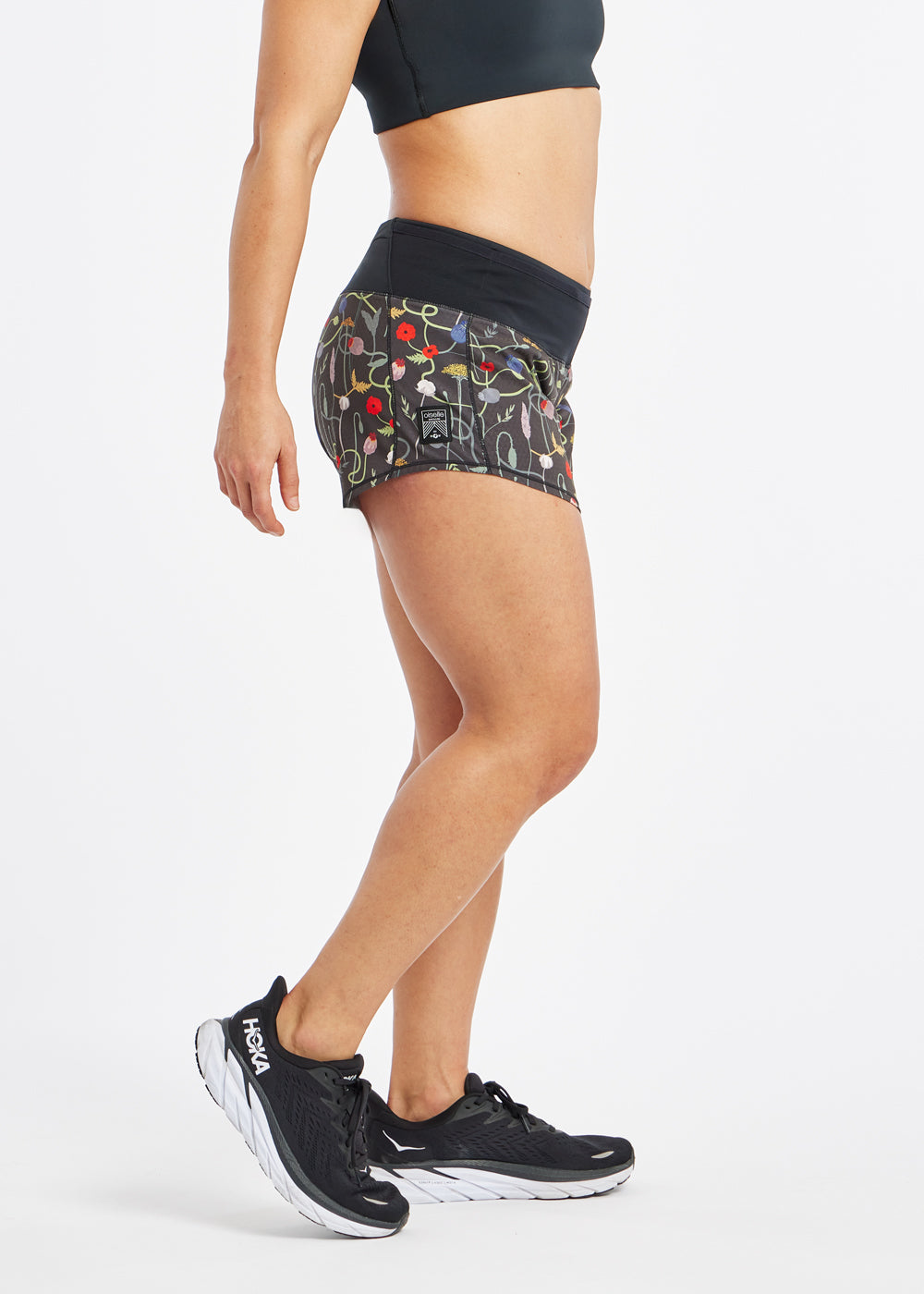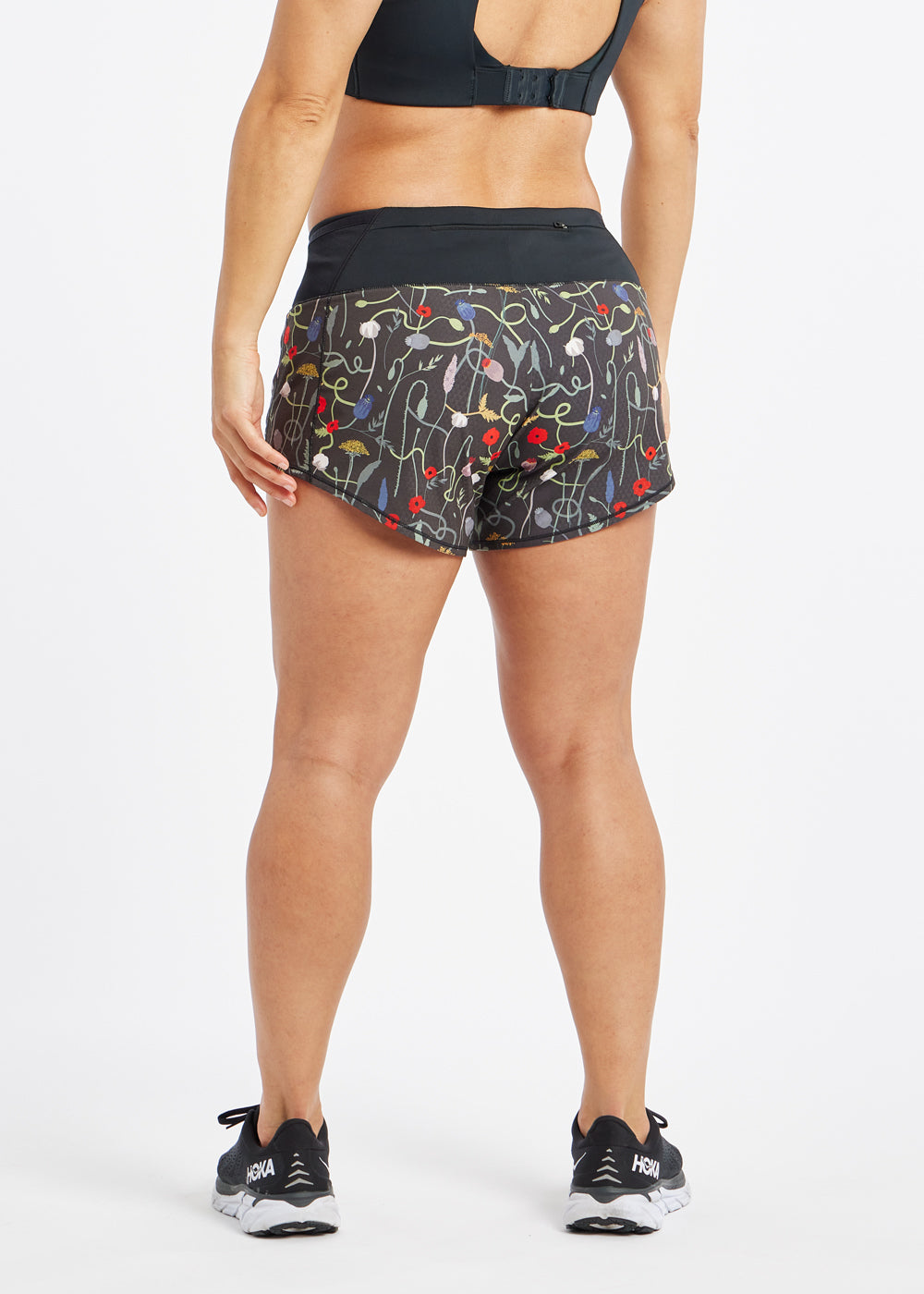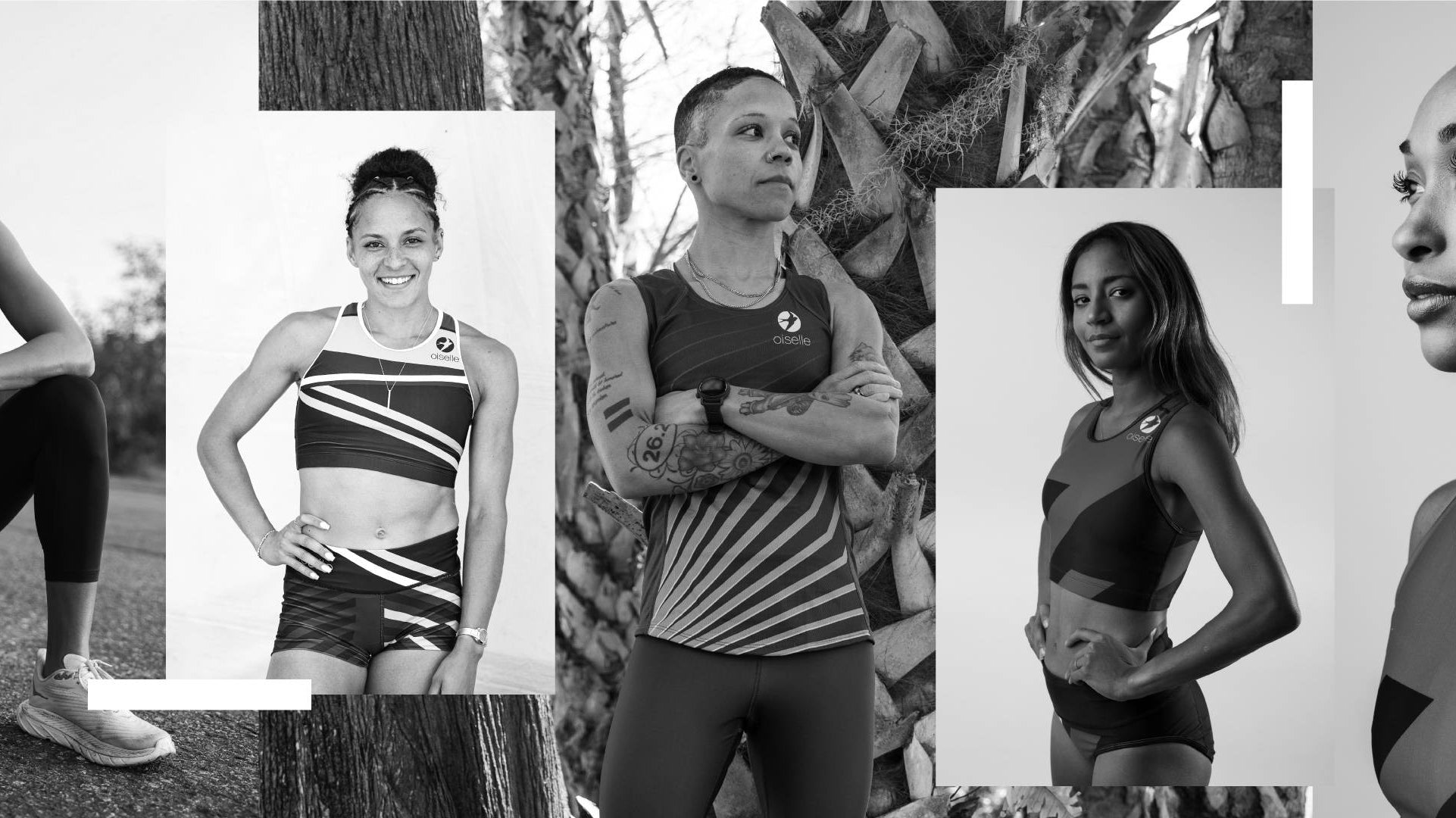Phrases encouraging us to look “past our differences” are often nonchalantly thrown around, as if we can simply put blinders up and ignore defining parts of the human experience. It sounds impossible because oftentimes it is, and in reality, we should be acknowledging and embracing our differences, knowing that they inevitably influence how we individually, and collectively, interact with the world. Wheelchair racer, Eva Houston, shares her experience growing up with the desire for people to look past her wheelchair, to finding spaces where she found power in putting her disability first.
My name is Eva Houston, and I am a Paralympic wheelchair racer who lives and trains in Champaign, IL. I am an environmental scientist, a food-justice advocate, a member of the queer community, a sucker for a good podcast with a cup of coffee, and I love to run. These identities usually take a close friend to unveil, but my wheelchair is what most strangers take in first.
My wheelchair makes my disability identity LOUD. I wish it screamed “Hi, I’m Eva and I love to make people laugh” or “Hi, I’m Eva and my favorite ice cream flavor is all of them!” Instead, the wheelchair invites people to make conclusions about who I am and what I’m capable of before they get to know me. As a young girl, I made it my mission to make every other interesting thing about me so loud that people would look past my wheelchair, and I could get a “free pass” into the able-bodied world. I mastered this, if I do say so myself! So, when I started wheelchair racing 8 years ago, I was unprepared for the ways racing would challenge my confidence as a wheelchair user and force me to confront my own internalized ableism.
I started off playing wheelchair basketball, which was somewhat forced on me by my loving mother who just wanted her pre-teen to make friends and try something new. I owe her everything for that now. I played basketball for 7 years, and while it did not show off my strengths as an athlete, it led me to a sport that did. I first got into a racing wheelchair when I was 15 years old, and I immediately realized that I had the biggest crush on racing.
I was hooked on the feeling of my muscles being sore after a good day at the track, and the feeling of the world passing by as I moved my arms faster and faster.
Looking back, I realize how lucky I am that my high school track team welcomed me with open arms. My coaches had never worked with a wheelchair racer before, but they were up for the challenge and were willing to learn pushing techniques, chair maintenance, and how to fight for the rights of high school wheelchair racers in Nebraska. I felt like I had been handed a pot of gold.
I loved to go fast and watch the numbers on the clock become smaller and smaller with hard work. However, what I loved most was being on the track team with my classmates. When I was on the track, I felt I was “less disabled” to my peers, to strangers, and to my young teenage girl mind. When I was in my racer, I felt that for once people were sincerely impressed by my abilities. I could do anything. I could be anyone.
But like all new things and talents, my wheelchair racing became less exciting over time, and I realized that there was no escaping the fact that I was the “girl in the wheelchair on the track team.” To be fair, my teammates and coaches always treated me with respect and never made me feel less than, but my lack of confidence and self-love were catching up to me. I couldn’t “star athlete” my way into self-acceptance, but man did I want to! Reflecting on this years later, I can recall the moment that I started to isolate myself from my team. It was my junior year, and I so desperately wanted to be a leader whom my younger teammates could look up to. However, my workouts looked different than theirs, and I felt as though I had nothing to offer them. I turned into your stereotypical angsty teen, started to fall out of love with going fast and began to resent my sport when my body hurt.
I was ready to leave Nebraska by the end of high school. I was so grateful for the people who opened doors for me as a young athlete. AND I was ready to find a wheelchair-racing community that could push me to the next level in my sport. I was looking for a group who would understand my goals, my challenges, and all the magic things that happen when you devote yourself fully to this sport. Boy did I find that at the University of Illinois! I went from being one of the only wheelchair users in my high school to being on a team with 15 other wheelchair racers, each with years of experience, and so much wisdom to share.
My first couple of years on the team I was very shy. I was beyond intimidated by the reputation of the team. The best of the best had been transformed by the program in Illinois, and anyone could feel its life-changing powers by simply walking into practice. I kept to myself the first year or two, but I was all eyes and ears. I became a sponge, looking for racing knowledge anywhere it would leak out. I made it my goal to learn something new every day at practice. What did my teammates eat before practice, and how did they race in the rain? How did my coach approach things like rest and goal setting? My kind teammates took me under their wing and before I knew it, I was no longer starstruck. Soon they became my chosen family, and I knew their coffee orders, where they grew up, and who their soulmates were.
My teammates helped me see the value in putting my disability first in new spaces. They showed me the power of my unique perspective and how I could help others who might feel alone like I had just a couple of years before. I felt myself getting stronger physically, but I was also growing into a braver, more authentic version of Eva.
The Illinois program showed me the power in saying yes to everything that scared me. Scared to run a marathon? Let’s try it. Scared to race on the Paralympic stage? Let’s do it. Scared to come out as queer to my friends and family? I had the skills to handle that too.
Photos by Marcus Hartmann (USOPC)
It might sound dramatic to credit wheelchair racing for my self-confidence, but I genuinely believe that my sport has given me a superpower. I have no idea who I could be without it, but I do know that I take more chances and love more deeply since jumping in a racing wheelchair. It has introduced me to my best friends, allowed me to see the world, and I will never ever regret any of the sore muscles it has given me in return.
Fun fact - having Eva on the blog was a fun full circle moment for us since she was a Oiselle Flyer (our collegiate sponsorship program) during her undergraduate days and currently trains with Jenna Fesemyer! You can follow Eva on Instagram and check out her following resources below:
We thank Eva for being courageous and telling her story to our community! Do you have a story you want to tell? Let us know below, or email hello@oiselle.com.



































































































































































